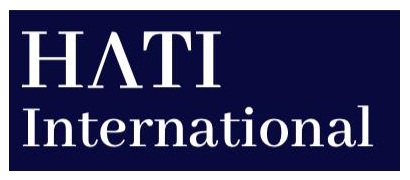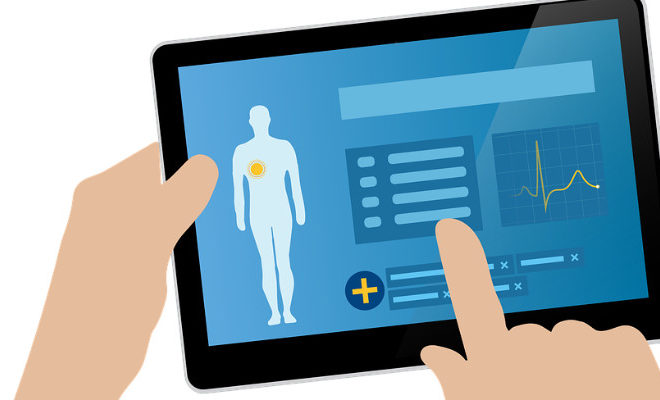The Critical Role of Enterprise Content Management in Healthcare
An Enterprise Content Management (ECM) helps healthcare institutions create, store, distribute, discover, archive, and manage unstructured content. This content can range from scanned documents, invoices, reports, official records, reports, documents, images, and so on. With the huge influx of data received by healthcare organizations, ECM finds many takers.
The popularity of ECM technology can be gauzed from the fact that the market is set to grow exponentially at 17% CAGR during the period of 2017 to 2023. The market is estimated to reach a valuation of USD 80 Bn by the end of 2023.
In healthcare, it helps various providers create a centrally managed repository of unstructured information. It makes information readily available at fingertips and reduces the need to enter data more than once. This data can be analyzed to enhance the business processes, get a better understanding of financial performances, and also, review crucial information to offer better services.
It is the first and the most important step to create a paperless environment, integrate sub-systems, and plays a critical role in healthcare. Let’s take a look –
Empowered Patient
WHO defines empowerment as “a process through which people gain greater control over decisions and actions affecting their health” (WHO 1998.)
This shift has been brought forth by the use of avant-garde technology and facilities, which have increased patients’ access to information. With several healthcare facilities shifting to electronic records made available via various devices, web-based platforms, and apps, patients have easy access to information. They are now active contributors to their health and are more informed. Apart from their health records, they also have access to educational information and information to help them stay connected with their caregivers.
Mobility
ECM offers online access to patient information with secure interfaces. Moreover, it provides the ease of automatically routing the requisitions for approval and review of various information. Mobile access to the content and various processes can increase access to multiple healthcare services and functions quickly.
Think of it this way, the system completely does away with the need to copy, transport, and sort the documents in batches. There is a seamless exchange of information across various disciplines, locations, and departments along with reducing the need for expensive servers. Likewise, with the flexibility of the cloud, there is already built-in scalability. Thus, it becomes easy for the healthcare providers to route the forms to different personnel for verification, billing, and coding, without any hassles.
Process Automation
An ECM not just helps in storing and accessing medical documentation easily, but it also helps in critical operations. For instance, it can be useful for healthcare organizations to meet their overall financial goals and enhance strategic planning. It gives healthcare executives access to tools for proper functioning of various processes. This, in turn, makes procurement, purchase orders, invoicing and payment more effortless and achieve tremendous cost saving.
Furthermore, a study by IBM supports the fact that analytical data is useful for improving financial and administrative performances by “optimizing the supply chain, improving risk management and increasing revenues.” All in all, ECM offers healthcare firms better process visibility, and therefore, they can plan better for the future.
Timely Alerts
The fact that ECM helps reduce paperwork can also have one more significant advantage. It can lead to faster reaction times due to timely alerts. This is a stark difference from retrieving hard copies of the documents, which used to be time-consuming and took several minutes, hours, and even days. ECM uses a unified, secure system to help organizations retrieve all the documents in the blink of an eye and allows caregivers to offer prompt and timely care.
Better Patient Care
ECM translates to instant and seamless access to patient information. This means that less amount of time is spent to search for documents. Hence, it provides healthcare organizations more time to focus on patient care. Additionally, ECM can also simplify the tasks of front desk services by instantly scanning and retrieving admissions items to set patient care in a swift motion. For instance, the filing process gets accelerated, and test results are automatically updated. In brief, it reduces information loss and therefore, the related costs. Think of faster admissions, quick assigning of rooms, getting quick access to medical histories, and in turn, better patient care.
Staff Optimizations
ECM makes it easy to move data effectively between internal staff, the payers, vendors, patients, providers, labs, pharmacies, among others. The crux lies in enhancing the flow of the information irrespective of the source. Both these aspects together can reduce the cost for patient care as well as facilitate overarching operational efficiencies and workflows.
For instance, ECM can automate ERP systems, add speed and accuracy by eliminating data entry, making costly paper systems such as fax, copy, print, and mailers, and complex storage systems redundant. The centralized information is accessible to all the relevant stakeholders, anytime, anywhere, on the device of their choice. Therefore, it can easily connect staff with critical information and, thus, paves the way for quality care.
Since healthcare facilities are generally abuzz with patients and other medical services, it is a major step that can sort a lot of steps like the exchange of information between internal departments and free up resources to handle other crucial tasks. Various back-office processes are enhanced due to its implementation, including facilities management, human resources, legal, accounting, and credentialing.
Have You Tried Implementing ECM in Your Healthcare Organization Yet?
Healthcare organizations can achieve their goals seamlessly when they aim for sustainable and efficient systems. Both structured and unstructured content is going to be the key to gain insights and implement the best measures to take the services to the next level.
As a forward-thinking healthcare organization, you need to take into consideration the best ECM solution that implements the latest technologies to drive significant improvements in your services.



